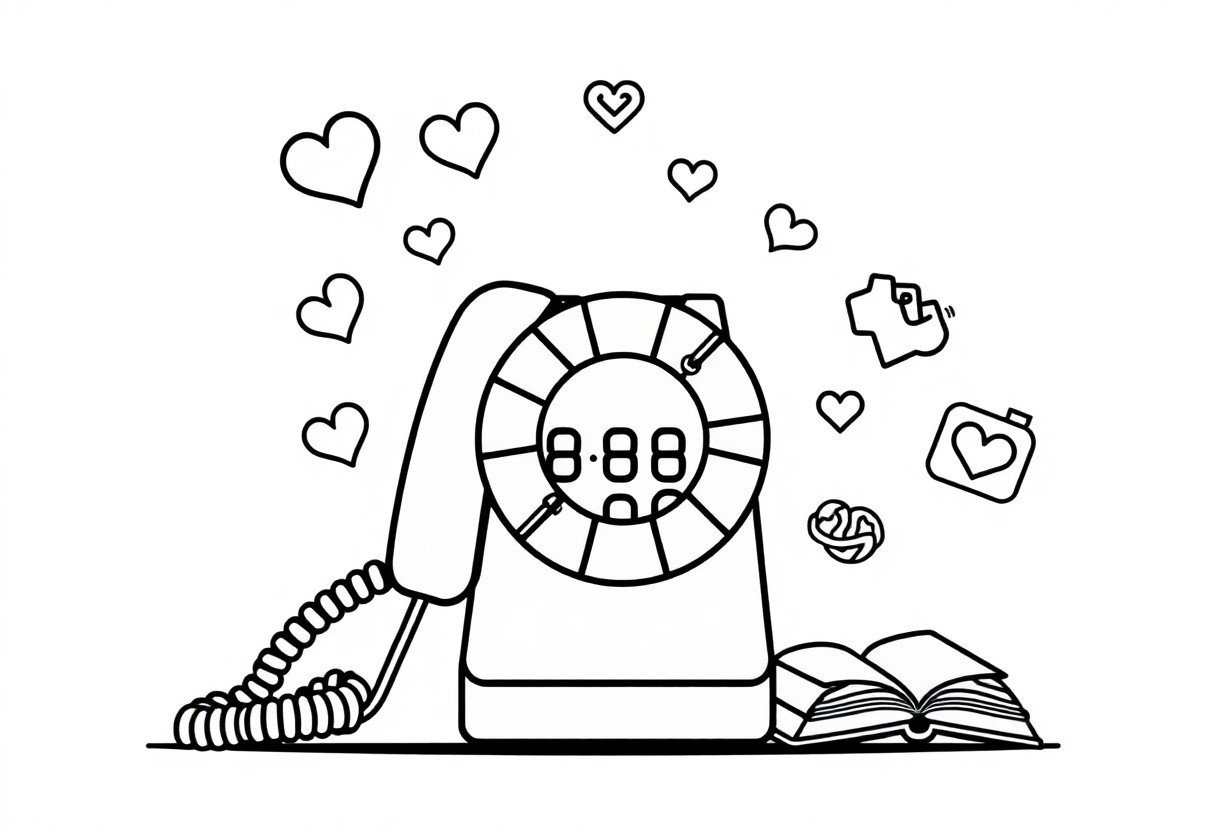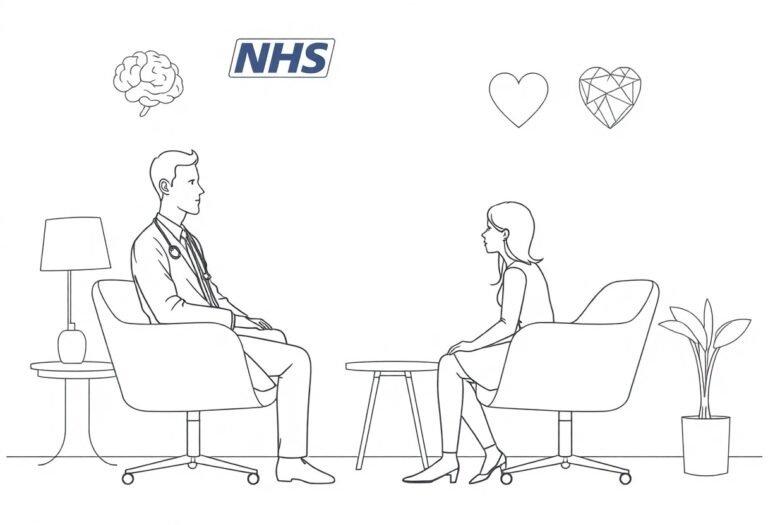Crisis Helplines – When and How to Use Them
Many individuals face overwhelming moments that can lead to feeling lost or hopeless. Crisis helplines are vital resources designed to provide immediate support and guidance when you find yourself in distress. Knowing when and how to use these helplines can significantly impact your mental well-being. In this blog post, you’ll learn the signs that indicate a need for help and the steps to take to connect with these vital services, ensuring that you are never alone in your struggle. Your mental health matters and seeking help is a strong and positive step forward.
Key Takeaways:
- Crisis helplines are available for various situations, including mental health emergencies, substance abuse, and emotional distress, providing support 24/7.
- When contacting a helpline, it’s important to be open and honest about your feelings and experiences to receive the most effective assistance.
- Using a crisis helpline can be a first step towards professional help and can offer immediate relief during a difficult time.
Understanding Crisis Helplines
While navigating difficult times, you may find yourself seeking immediate support, and that’s where crisis helplines come in. These services provide you with a safe, confidential space to talk about your feelings and experiences, allowing you to receive professional guidance and assistance when needed most.
What is a Crisis Helpline?
For anyone facing overwhelming situations, a crisis helpline is a dedicated resource where you can talk to trained professionals ready to assist you. These helplines operate 24/7, ensuring that someone is always available to listen and help you navigate your emotions.
Types of Crisis Helplines
Helplines cater to various needs, providing tailored support across different situations. They include:
- Suicide Prevention Helplines
- Mental Health Support Helplines
- Substance Abuse Helplines
- Domestic Violence Helplines
- Child and Youth Support Helplines
This variety allows you to find the right support specific to your situation, alongside the assurance that help is always within reach.
| Type | Description |
|---|---|
| Suicide Prevention | Focuses on helping individuals in crisis regarding suicidal thoughts. |
| Mental Health Support | Offers guidance for anxiety, depression, and other mental health issues. |
| Substance Abuse | Provides resources and support for addiction and substance-related issues. |
| Domestic Violence | Assists individuals facing abuse and offers a safe space to discuss options. |
| Child and Youth Support | Catered specifically for young people needing guidance and support. |
Helplines can assist in finding the right direction tailored to your unique situation, allowing you to regain control during overwhelming moments. Their variety can include:
- Text Lines – For those who prefer texting over talking.
- Online Chat Services – Enabling you to communicate via websites.
- In-Person Services – Available for those who seek face-to-face support.
- Support Groups – Offering community-based help.
- Emergency Services – Immediate assistance for life-threatening situations.
This broad range of options allows you to choose the most comfortable and effective means to reach out for help when you truly need it.
| Type | Description |
|---|---|
| Text Lines | Offer immediate support via text messaging. |
| Online Chat Services | Facilitate communication through a website chat. |
| In-Person Services | Provide face-to-face interaction for support. |
| Support Groups | Allow sharing experiences with others facing similar challenges. |
| Emergency Services | Handle critical, life-threatening crises directly. |
When to Use a Crisis Helpline
Even in difficult times, knowing when to reach out for help can be transformative. If you find yourself feeling overwhelmed, hopeless, or in a state of emotional distress, it’s vital to consider contacting a crisis helpline. These services are designed to support individuals facing various challenges, ensuring that you are not alone when dealing with distressing situations. Whether you’re struggling with mental health issues, experiencing traumatic events, or feel uncertain and need guidance, a crisis helpline can provide the support and resources you need at that moment.
Recognizing Signs of Crisis
If you are experiencing intense emotional pain, feeling disconnected from reality, or having thoughts of self-harm or suicide, it is crucial to take these signs seriously. You might also notice increased anxiety, difficulty functioning in daily life, or a sense of hopelessness. Acknowledging these feelings is the first step toward seeking help. Reaching out to a crisis helpline can connect you with trained professionals ready to assist you in overcoming these challenges.
Factors to Consider Before Calling
To make the most out of your experience with a crisis helpline, it’s important to consider several factors beforehand. Here’s what you should evaluate:
- Your current emotional state
- The urgency of your situation
- Availability of support systems in your life
- Your desire to speak to a professional
After assessing these aspects, you will feel more prepared to engage in a supportive conversation that can guide you to the help you need.
Crisis helplines often operate 24/7 to provide immediate support. It’s important to recognize that you do not need to be in extreme distress to call; even minor worries can benefit from a professional’s insight. Make sure you are in a safe environment where you can talk openly. If discomfort arises when discussing your feelings, you can request a different approach. This flexibility can be crucial for your comfort. After understanding these factors, you can approach the helpline with confidence.

How to Use a Crisis Helpline
All crisis helplines can provide support and guidance when facing overwhelming situations. To maximize the benefit of these services, take the opportunity to reach out, discuss your feelings, and explore potential solutions. These helplines are staffed by trained professionals ready to assist you. Whether you choose to call or text, just know that help is available, and you’re not alone in your struggles.
Steps to Follow When Calling
The first step when calling a crisis helpline is to find a quiet, comfortable place where you can talk freely. Introduce yourself and explain your situation as clearly as possible. Be open to questions from the counselor, as they can help guide the conversation towards finding solutions. If you feel overwhelmed, take deep breaths and let the helpline worker know how you’re feeling.
Tips for Effective Communication
There’s a great benefit to being clear and honest during your conversation with a crisis helpline. To ensure effective communication, focus on these tips:
- Be honest about your feelings and experiences.
- Use specific examples to illustrate your situation.
- Stay calm and take your time to express yourself.
- Ask questions if you need clarification or support.
Assume that being transparent will help the helpline worker support you better.
It is crucial to understand that effective communication can significantly enhance your experience during a crisis call. Use active listening techniques, and don’t hesitate to express any urgency in your situation. Focus on the present and provide as much detail as you feel comfortable sharing. This may include your emotional state as well as any immediate risks you are facing. Engage with the counselor actively, and trust their expertise. Lastly, assume that their goal is to support you in gaining clarity and finding solutions.
What to Expect During a Call
Despite the uncertainty you may feel before reaching out, a call to a crisis helpline is designed to be a supportive and understanding experience. Trained professionals will guide you through your feelings and concerns, providing a safe space for you to express yourself freely. You can expect empathetic listening and helpful suggestions tailored to your unique situation, aimed at helping you find a path forward.
Confidentiality and Support
Now, it’s important to understand that your call will be treated with the utmost confidentiality. Helpline staff prioritize your privacy, ensuring that what you share remains between you and them. Their primary goal is to provide you with a supportive and judgment-free environment, empowering you to openly discuss the challenges you are facing.
Resources and Follow-Up
Support doesn’t end with the call. You’ll often be provided with resources that can further assist you, such as local services, community support groups, or mental health professionals. The helpline staff may suggest follow-up options, allowing you to continue the conversation if needed and ensuring you do not navigate your challenges alone.
Call the helpline to gain not just immediate emotional support but also access to a wealth of external resources. After your conversation, you might receive information about community centers, online support programs, or mental health workshops that you can utilize for ongoing assistance. Whether it’s about connecting with a therapist or joining a support group, the help offered extends beyond the call, reinforcing that you have a network of support to rely on during difficult times.
Alternatives to Crisis Helplines
Once again, it’s vital to explore alternatives to crisis helplines, especially if you prefer face-to-face interactions or local support. Community centers, support groups, and helpline services with online chat options can provide valuable resources. You can also connect with friends or family who understand your situation or join support networks to share experiences. Finding the right alternative often depends on your comfort level and the specific challenges you face.
Other Support Services
Some alternatives you may consider include therapy groups, counseling services, and mental health workshops. These options often provide a more stable environment where you can share your feelings in a supportive community. Non-profit organizations and local charities may also offer various resources, such as educational programs and peer support, which can be significantly beneficial.
When to Seek Professional Help
Crisis situations sometimes indicate that it’s time to seek professional help. If you experience persistent feelings of hopelessness, overwhelming anxiety, or thoughts of self-harm, reaching out to a mental health professional is vital. It’s not a sign of weakness but rather a strong step toward taking control of your well-being.
This is particularly true if you find that your usual support systems are ineffective or if your situation is escalating. Seeking professional help can provide you with the tools and strategies necessary to manage your feelings. A mental health expert can offer personalized treatment plans to address your specific needs. Prioritizing your mental health is vital, and when in doubt, reaching out can make a positive difference in your life.
Tips for Supporting Others in Crisis
Many people struggle to know how to support others in times of crisis. Here are some useful tips:
- Be a good listener
- Offer your presence
- Avoid judgment
- Encourage professional help if needed
- Follow up after the initial conversation
Recognizing that emotional support can greatly alleviate someone’s distress is necessary in these situations.
How to Approach Someone in Need
Clearly, approaching someone in crisis requires sensitivity. First, find a private and comfortable setting where they can express their feelings without distractions. Gently initiate the conversation, letting them know you are concerned and available to listen. Avoid overwhelming them with questions; instead, create an atmosphere of trust and openness, allowing them to share at their own pace.
Providing Empathy and Understanding
The key to effective support is fostering an environment of empathy and understanding. When you validate someone’s feelings and ensure they know they are not alone, you create a foundation for healing.
Need to convey empathy? Listen actively and make sure the person feels heard. Your responses should reflect that you value their feelings, even if you struggle to relate. Share positive affirmations and avoid minimizing their experiences. Understand that everyone’s crisis is valid and can very well include feelings of hopelessness and despair. Your compassion can motivate them to seek help, reassuring them that reaching out is a positive step forward.
Summing up
Following this, you should feel empowered to utilize crisis helplines whenever you face emotional distress or a crisis situation. These resources are available 24/7 and can provide immediate support, guidance, and a listening ear. Whether you’re feeling overwhelmed, anxious, or just in need of someone to talk to, reaching out to a helpline can be a vital step towards finding help and regaining your footing. Don’t hesitate to act; your well-being is important, and help is just a phone call away.
Q: What are Crisis Helplines and what types of situations do they address?
A: Crisis Helplines are confidential support services that provide immediate assistance to individuals facing emotional distress, mental health challenges, or urgent personal crises. They address a variety of situations including, but not limited to, suicidal thoughts, feelings of overwhelming anxiety or depression, substance abuse issues, domestic violence, and trauma. These helplines are staffed by trained professionals or volunteers who offer a listening ear, guidance, and resources to help individuals navigate their crises.
Q: When should I consider calling a Crisis Helpline?
A: You should consider calling a Crisis Helpline if you are experiencing a situation that feels overwhelming or beyond your ability to cope effectively. This includes moments of acute distress, such as having thoughts of self-harm or suicide, feeling isolated or hopeless, or encountering a high-stress event like a breakup, job loss, or traumatic incident. Additionally, if you are seeking someone to talk to about your feelings or problems and prefer anonymity, a Crisis Helpline can be a safe space for that conversation.
Q: How do I find and use a Crisis Helpline?
A: To find a Crisis Helpline, you can search online for services available in your area or country. Many national helplines cater to specific issues, so it is helpful to identify your particular needs. When you call, expect to be greeted by a trained professional who will listen to your concerns without judgment. You can share as much or as little as you feel comfortable with. Bear in mind, the goal is to provide support and help you find resources if needed. It can be helpful to write down notes or reflect on your feelings beforehand to make the conversation more productive.
Access to Support and Services







